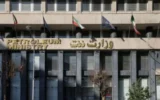Transformation in energy policies; Four axes of the Ministry of Oil to curb imbalance and combat fuel smuggling

According to Energy Press, the Ministry of Oil in the 14th government, by changing its approach from traditional supply-oriented policies to smart consumption management, launched a series of comprehensive programs to curb energy imbalance and combat the phenomenon of fuel smuggling. These policies, which range from price reform and modernization of the aging fleet to the development of electrification infrastructure and digital monitoring of the fuel chain, are a strategic effort to move towards efficiency, justice and sustainability in the country’s energy distribution system.
Since the beginning of the 14th government’s activities, the Ministry of Oil’s approach to managing petroleum products has changed from focusing solely on supply to policymaking based on demand management and consumption optimization. This change in approach means focusing on controlling demand and optimizing consumption, along with increasing production capacity, as the main solution to curbing the gap between supply and demand. Accordingly, four main axes, including price policies, non-price policies, fuel portfolio diversification and combating off-grid supply and smuggling, have been put on the agenda of the Ministry of Oil.
Price policies; gradual reform of rates
In the field of price policies, the Ministry of Petroleum has submitted its proposals to the competent authorities in the field of fuel price and quota reform so that decisions can be made at the macro level of the country. As an executive, this ministry is responsible for preparing the implementation framework. Since the beginning of 1404, the price of jet fuel has been revised by an increase of 30 percent compared to the purchase price of refineries, and for special vehicles, arrangements are being implemented for the supply of super gasoline at a free rate by the private sector.
In the oil and gas sector, measures have also been taken to revise the consumption rates of large industries, mines, self-sufficient power plants, and transportation in excess of the quota, and the relevant regulations have been approved by the Cabinet.
Non-price policies; modernization of the worn-out fleet
One of the key axes of non-price policies is the modernization of the transportation fleet. According to the Ministry of Energy, more than 52 percent of the country’s motor fleet is worn out. The Seventh Development Plan has set a target of scrapping 500,000 worn-out vehicles annually. In this regard, the National Iranian Refining and Distribution Company has reached an agreement with interested entities, and the government’s commitment ceiling in this sector is estimated at about $10 billion, and financing will be provided through the issuance of oil and gas savings bonds, the process of accepting which is being pursued on the energy exchange. In addition to reducing fuel consumption, this measure has significant positive environmental effects.
Diversifying the fuel portfolio
One of the main goals of the Ministry of Oil is to reduce dependence on gasoline, which currently accounts for more than 87 percent of the fuel portfolio. To this end, expanding the CNG fleet, utilizing excess LPG capacity, and electrification programs are on the agenda.
In the CNG sector, the Ministry of Oil paid off the contractors’ $44 million debt by issuing gas savings bonds, and 8,000 vehicles were converted to dual-fuel (AM) in the past year. Also, by signing a new contract with automakers, the factory production program for dual-fuel vehicles (OEM) is being implemented for 55,000 vehicles by the end of the year. On the other hand, in order to replace worn-out tanks over 15 years old, which was considered one of the main risks of dual-fuel vehicles, 14,000 worn-out tanks over 15 years old have been replaced in the past year.
In the LPG sector, the necessary follow-up has been carried out to notify the standard for the construction of liquefied gas supply stations and the standard for LPG dual-fuel vehicles by the National Standards Organization, and the final steps to grant licenses for liquefied gas stations and sales pricing are being followed up and taken by this company.
Tags:Energy
- Comments sent by you will be published after approval by site administrators.
- Comments that contain slander will not be published.
- Comments that are not in Persian or not related to the news will not be published.

Comments
Total comments : 0 Awaiting review : 0 Date: 0